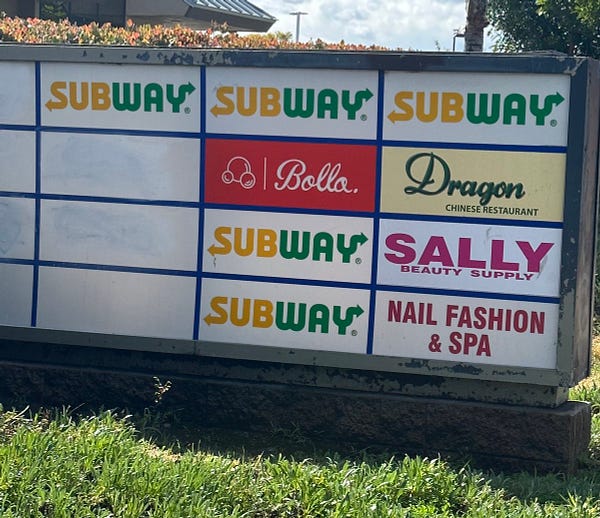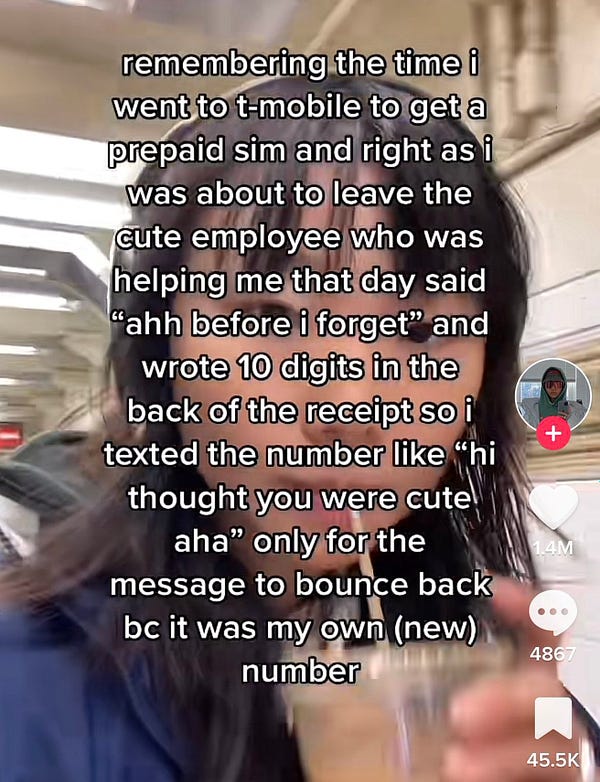Winners and losers in the race to add AI
Here’s this week’s free Platformer — an exploration of the rapidly growing market for AI tools inside apps like Snapchat and Notion, featuring my interview with Notion CEO Ivan Zhao. We love our free readers, but paid subscribers get more. This week, they received our scoop about Twitter’s most recent layoffs, and how they appear to position Boring Company CEO Steve Davis as a likely candidate for Twitter CEO. We’d love to email you those scoops every week. Subscribe now and we’ll send you the link to join us in our chatty Discord server, where we now post all of our breaking news first.
Winners and losers in the race to add AIChatGPT is now running inside Snapchat, Notion, and other apps. Will it give them a sustaining advantage — or just line OpenAI's pockets?Today, let’s talk about a subject that crosses my mind with every generative-AI startup pitch that lands in my inbox: who’s going to make the real money off artificial intelligence? Last week the productivity startup Notion announced that Notion AI, a suite of tools based on OpenAI’s ChatGPT, had entered general availability. For $10 per user per month, Notion can now summarize meeting notes, generate lists of pros and cons, and draft emails. Notion AI is among the first in a wave of companies that are racing to capitalize on growing interest in generative AI. This week Snapchat made available a ChatGPT-based chatbot called My AI for subscribers to its $4-a-month Snapchat Plus offering. The educational app Quizlet announced a ChatGPT-based tutor called Q-Chat. And Instacart said it is developing a tool that that will let customers ask about food and get ‘shoppable’ answers informed by product data from the company’s retail partners.” What I’m interested in, as more and more companies adopt features like this, is where the ultimate value lies. Will an ever-growing number of companies find ways to integrate AI into products that are valuable enough to charge for — or will the bulk of the profits go to the small number of companies building and refining the underlying models on which those tools are based? The answer will go a long way in determining whether generative AI represents a true platform shift on the order of the move from desktop computers to mobile phones, or a more limited set of innovations whose benefits accrue to a handful of big winners. The subject is clearly on developer’s minds. This week, in response to concerns, OpenAI said it would no longer use developers’ data to improve its models without their permission. Instead, it would ask developers to opt in. “One of our biggest focuses has been figuring out, how do we become super friendly to developers?” Greg Brockman, OpenAI’s president and chairman, told TechCrunch. “Our mission is to really build a platform that others are able to build businesses on top of.” Maybe it’s that simple — developers don’t want to help OpenAI refine its models for free, and OpenAI has decided to respect their wishes. This explanation feels more consistent with a world where AI really does represent a platform shift. Or maybe OpenAI believes that its models can continue to improve rapidly with or without all of those developers opting in. This explanation feels more consistent with a world in which OpenAI and a handful of others reap most of the rewards of AI. So what kinds of AI features are people actually selling? For the moment, AI products on the market are essentially just white-labeled versions of ChatGPT. As of this week, OpenAI is making it available to other companies through an API. For $0.002 for about 750 words of output, any company can resell ChatGPT in their own app. For the moment, then, there’s not really much consumer choice when it comes to generative AI. To the extent that there are multiple options, it’s in interfaces. Do you want to draft an email using AI? It might be more convenient in Notion, where you already have some meeting notes. Do you want to get some recipe ideas or ask a quick trivia question? If you’re away from your laptop, it might be fastest to ask My AI on Snapchat. For the moment, there are still billions of people who have never used ChatGPT. Introducing a re-skinned version of that service to a popular consumer app like Snapchat, which has 750 million monthly users, could help it find a whole new audience. Paying Notion or Snapchat for the feature also guarantees access to a service that has often gone offline amid heavy usage of its own web app. At the same time, services like this are largely just making a bet against copy-paste. You can already get essentially everything here for free inside ChatGPT; apps like Notion and Snapchat are selling what feel like a fairly minor convenience for a significant premium. The promise is that these tools will become more personalized over time, as individual apps refine the base models that they rent from OpenAI with data that we supply them. Every link that has ever been in Platformer is stored in a Notion database; what if I could simply ask research questions of the links I have stored there? Those sorts of features are coming, Notion CEO Ivan Zhao told me in a recent interview. The initial set of writing and editing tools represent a “baby step,” he said. But much more profound changes are coming. “I’ve never been this excited about something,” said Zhao, who is not prone to hyperbole. “It feels like electricity: the large language model is the electricity, and this is the first light-bulb use case. But there are many other appliances.” Zhao told me that Notion would add lasting value to the language model by creating interfaces that are easier to use than rivals’. This is a more important project than it may first appear: one reason voice interfaces like Siri and Alexa have plateaued is that users struggle to remember all the different things they can be used for. (Another is that their language models aren’t nearly as sophisticated as ChatGPT’s.) “This is as much an interface revolution as a technology revolution,” Zhao told me. “And we’re good at interfaces.” There should also be real value in more personalized AI models. I’ve spent the past year or so writing a daily journal in an app called Mem, which offers its own set of ChatGPT-based features to premium subscribers. Eventually, I imagine I’ll be able to ask my journal all sorts of questions in natural language. What was I worried about last summer? When’s the last time I saw my friend Brian? A journal that gets good at that sort of thing could command a premium price, I think. Still, there’s probably a limit to how many add-on AI subscriptions most people will want to pay for. Over time, the cost for these features seems likely to come down, and many of the services that cost $10 a month today may someday be offered for free. But that, too, poses a risk for startups betting on features like these to drive growth. The cheaper the services get, the more likely they are to be offered for free by big platforms. What happens to Notion when its full suite of premium AI tools is offered for no cost within Google Docs? The best-case scenario for these companies, I think, is that generative AI comes to resemble the cloud-computing market. The basic infrastructure will be built by a handful of companies, but the capabilities they make available cheaply inspires an entire new generation of startups. At the same time, the capabilities of ChatGPT and other large language models are only going to expand — and I suspect they may gobble up a lot of today’s AI startups along the way. As they implement AI features into their apps this year, tech companies would do well to ask whether they might be building on top of a sinkhole. What do you think? I’m curious where you think the ultimate value will accrue in the shift to generative AI. Please send me your best guesses, data, metaphors, analogies, and so on. If I get enough good stuff I’ll post an update next week. On the podcast this week: David Yaffe-Bellany joins to catch us up about the legal case against Sam Bankman-Fried and the recent surge of enforcement actions against crypto companies. Plus: Kevin and I try out a most controversial TikTok filter … and it makes us look beautiful. Hard Fork Live: I’m excited to announce that the first-ever live episode of Hard Fork will take place March 11 at the South By Southwest festival! We’ll be joined by Jonathan Kanter, who leads the antitrust division at the US Department of Justice. Please come say hi if you’re in Austin! Apple | Spotify | Stitcher | Amazon | Google Governing
Industry
Those good tweetsFor more good tweets every day, follow Casey’s Instagram stories.  opening every single shared document i have access to at my job, highlighting the entire document without looking at it, commenting “?”, and immediately going on vacation  texans are so scary bc they have a very mild accent so you think they're normal and let your guard down and then you offer them an orange and they say "i've never eaten fruit" Talk to usSend us tips, comments, questions, and AI use cases: casey@platformer.news and zoe@platformer.news. By design, the vast majority of Platformer readers never pay anything for the journalism it provides. But you made it all the way to the end of this week’s edition — maybe not for the first time. Want to support more journalism like what you read today? If so, click here: |
Older messages
In latest round of Twitter cuts, some see hints of its next CEO
Tuesday, February 28, 2023
Is the job Steve Davis' to lose? PLUS: A smart new tool to fight child exploitation online
New cracks emerge in Elon Musk's Twitter
Friday, February 24, 2023
Jira went down, Slack's gone, and site performance is degraded. What's next?
Yes, Elon Musk created a special system for showing you all his tweets first
Friday, February 17, 2023
After his Super Bowl tweet did worse numbers than President Biden's, Twitter's CEO ordered major changes to the algorithm
Elon Musk fires a top Twitter engineer over his declining view count
Thursday, February 9, 2023
Inside Twitter 2.0, turmoil leaves employees stretched to the max
Microsoft kickstarts the AI arms race
Wednesday, February 8, 2023
The relaunched Bing does research, writes emails, and just might hit Google where it hurts
You Might Also Like
How we review startups
Thursday, March 6, 2025
Our checklist for vetting startups before they go live on Microns. ͏ ͏ ͏ ͏ ͏ ͏ ͏ ͏ ͏ ͏ ͏ ͏ ͏ ͏ ͏ ͏ ͏ ͏ ͏ ͏ ͏ ͏ ͏ ͏ ͏ ͏ ͏ ͏ ͏ ͏ ͏ ͏ ͏ ͏ ͏ ͏ ͏ ͏ ͏ ͏ ͏ ͏ ͏ ͏ ͏ ͏ ͏ ͏ ͏ ͏ ͏ ͏ ͏ ͏ ͏ ͏ ͏ ͏ ͏ ͏ ͏ ͏ ͏ ͏ ͏ ͏ ͏
Growth Newsletter #243
Thursday, March 6, 2025
Get F*cking Going ͏ ͏ ͏ ͏ ͏ ͏ ͏ ͏ ͏ ͏ ͏ ͏ ͏ ͏ ͏ ͏ ͏ ͏ ͏ ͏ ͏ ͏ ͏ ͏ ͏ ͏ ͏ ͏ ͏ ͏ ͏ ͏ ͏ ͏ ͏ ͏ ͏ ͏ ͏ ͏ ͏ ͏ ͏ ͏ ͏ ͏ ͏ ͏ ͏ ͏ ͏ ͏ ͏ ͏ ͏ ͏ ͏ ͏ ͏ ͏ ͏ ͏ ͏ ͏ ͏ ͏ ͏ ͏ ͏ ͏ ͏ ͏ ͏ ͏ ͏ ͏ ͏ ͏ ͏ ͏ ͏ ͏ ͏ ͏ ͏ ͏ ͏ ͏ ͏ ͏ ͏ ͏
Notion’s lost years, its near collapse during Covid, staying small to move fast, the joy and suffering of building…
Thursday, March 6, 2025
Listen now (72 mins) | Ivan Zhao (co-founder and CEO of Notion) reveals how a lean team, a passionate community, and a contrarian building product approach turned Notion into one of the most beloved
☠️ This outdated ecommerce model is dead
Thursday, March 6, 2025
If you want real success, you need to create a microbrand with a unique product that stands out. Hey Friend , Ecommerce is exploding. Worldwide online sales are expected to hit $6 trillion this year.
Yann LeCun joins buzzy AI startup
Thursday, March 6, 2025
+ how to build a board of directors View in browser Powered by ViennaUP by Tom Nugent Good morning there, Some of Europe's buzziest AI startups are in a bind. As Kai Nicol-Schwarz reports today,
[VIDEO] From $4000 to a $14B empire: The Ray Dalio Episode
Wednesday, March 5, 2025
Hard-won lessons on success, decision-making, and overcoming setbacks. design-2-header-newsletter Hi there, We're thrilled to bring you the latest episode of the Foundr Podcast featuring Ray Dalio,
The Major Forces Transforming Commerce
Wednesday, March 5, 2025
The catalysts & shifts catalyzing new opportunities and changes across the ecosystem ͏ ͏ ͏ ͏ ͏ ͏ ͏ ͏ ͏ ͏ ͏ ͏ ͏ ͏ ͏ ͏ ͏ ͏ ͏ ͏ ͏ ͏ ͏ ͏ ͏ ͏ ͏ ͏ ͏ ͏ ͏ ͏ ͏ ͏ ͏ ͏ ͏ ͏ ͏ ͏ ͏ ͏ ͏ ͏ ͏ ͏ ͏ ͏ ͏ ͏ ͏ ͏ ͏ ͏ ͏ ͏
115 new Shopify apps for you 🌟
Wednesday, March 5, 2025
New Shopify apps hand-picked for you 🙌 Week 9 Feb 24, 2025 - Mar 3, 2025 New Shopify apps hand-picked for you 🙌 What's New at Shopify? 🌱 Shop available in French, German and Spanish New ⸱ Shop ⸱ 3
🗞 What's New: Attacked after disclosing her crypto wealth online
Wednesday, March 5, 2025
Also: US indie hackers escape new red tape ͏ ͏ ͏ ͏ ͏ ͏ ͏ ͏ ͏ ͏ ͏ ͏ ͏ ͏ ͏ ͏ ͏ ͏ ͏ ͏ ͏ ͏ ͏ ͏ ͏ ͏ ͏ ͏ ͏ ͏ ͏ ͏ ͏ ͏ ͏ ͏ ͏ ͏ ͏ ͏ ͏ ͏ ͏ ͏ ͏ ͏ ͏ ͏ ͏ ͏ ͏ ͏ ͏ ͏ ͏ ͏ ͏ ͏ ͏ ͏ ͏ ͏ ͏ ͏ ͏ ͏ ͏ ͏ ͏ ͏ ͏ ͏ ͏ ͏ ͏ ͏ ͏ ͏ ͏
PSA: DO NOT DO THIS
Wednesday, March 5, 2025
Read time: 57 sec. I came across a crazy Reddit post the other day. The guy said: “I burned the ships. I left my job… before even getting a client.” 🚨Sound the alarm 🚨 This is officially a public






